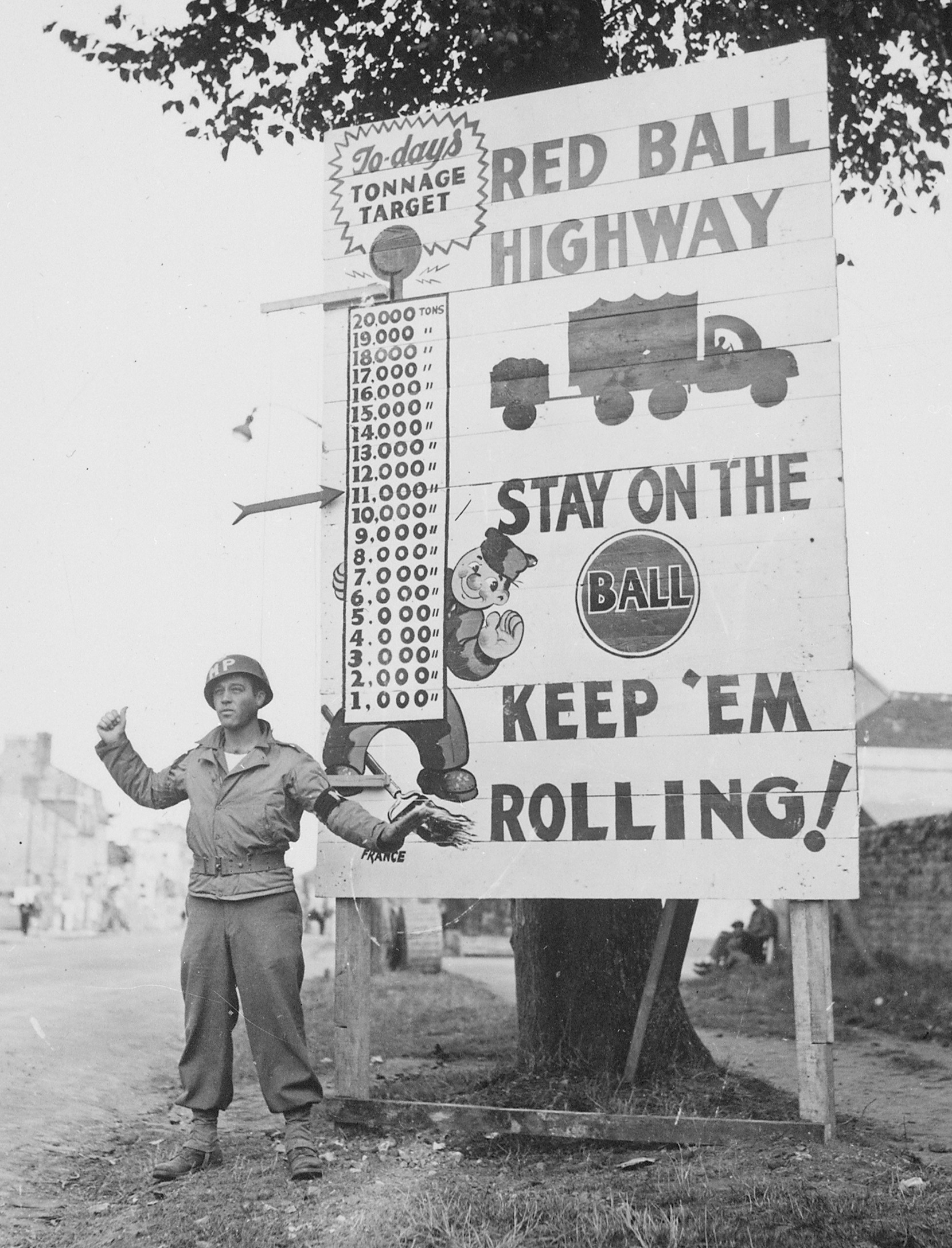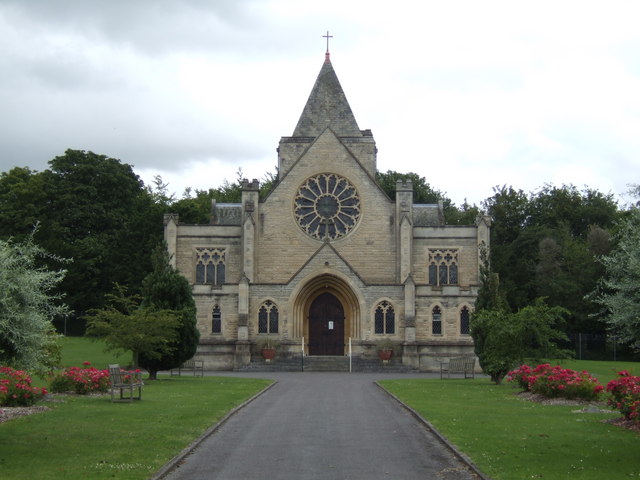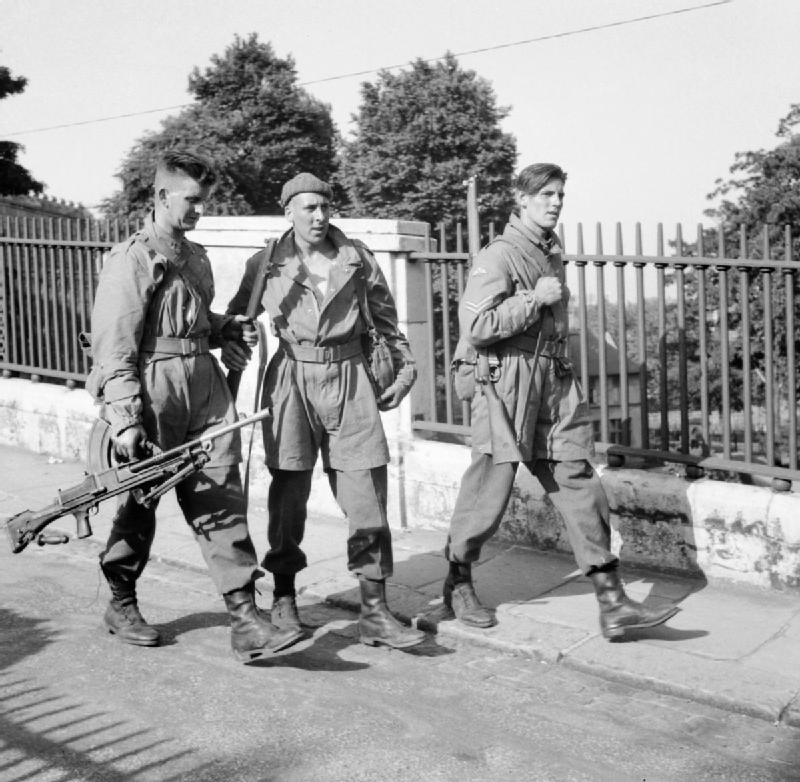|
1st Airlanding Light Regiment
The 1st Airlanding Light Regiment was an airborne forces unit of the British Army's Royal Artillery during the Second World War. The regiment was raised in 1943, by the expansion of an existing airborne artillery battery. Attached to the 1st Airborne Division in 1943, the regiment landed in Italy as part of Operation Slapstick—part of the Allied invasion of Italy—and then, when the division was withdrawn, it stayed behind to support other divisions of the British Eighth Army in the Italian Campaign until the end of the year. In 1944 the regiment rejoined the 1st Airborne Division in England and, in September 1944, took part in Operation Market Garden, which was the airborne assault in the Netherlands. During the battle of Arnhem that followed the regiment was one of the divisional units that formed a defensive ring around Oosterbeek. Reformed after Arnhem, the regiment never fought in another battle. They did, however, take part in Operation Doomsday, the repatriation of th ... [...More Info...] [...Related Items...] OR: [Wikipedia] [Google] [Baidu] |
Artillery
Artillery is a class of heavy military ranged weapons that launch munitions far beyond the range and power of infantry firearms. Early artillery development focused on the ability to breach defensive walls and fortifications during sieges, and led to heavy, fairly immobile siege engines. As technology improved, lighter, more mobile field artillery cannons developed for battlefield use. This development continues today; modern self-propelled artillery vehicles are highly mobile weapons of great versatility generally providing the largest share of an army's total firepower. Originally, the word "artillery" referred to any group of soldiers primarily armed with some form of manufactured weapon or armor. Since the introduction of gunpowder and cannon, "artillery" has largely meant cannons, and in contemporary usage, usually refers to shell-firing guns, howitzers, and mortars (collectively called ''barrel artillery'', ''cannon artillery'', ''gun artillery'', or - a layman t ... [...More Info...] [...Related Items...] OR: [Wikipedia] [Google] [Baidu] |
Operation Market Garden
Operation Market Garden was an Allies of World War II, Allied military operation during the World War II, Second World War fought in the Netherlands from 17 to 27 September 1944. Its objective was to create a Salient (military), salient into German territory with a bridgehead over the River Rhine, creating an Allies of World War II, Allied invasion route into northern Germany. This was to be achieved by two sub-operations: seizing nine bridges with combined U.S. and British airborne forces (Market) followed by land forces swiftly following over the bridges (Garden). The airborne operation was planned and undertaken by the First Allied Airborne Army with the land operation by XXX Corps (United Kingdom), XXX Corps of the Second Army (United Kingdom), British Second Army.The Battle for the Rhine 1944 by Robin Neillands, Chapter 4 The Road to Arnhem Although the largest airborne operation of the war up to that point, Market Garden's ultimate outcome remains debated: The operation s ... [...More Info...] [...Related Items...] OR: [Wikipedia] [Google] [Baidu] |
Lieutenant-Colonel
Lieutenant colonel ( , ) is a rank of commissioned officers in the armies, most marine forces and some air forces of the world, above a major and below a colonel. Several police forces in the United States use the rank of lieutenant colonel. The rank of lieutenant colonel is often shortened to simply "colonel" in conversation and in unofficial correspondence. Sometimes, the term 'half-colonel' is used in casual conversation in the British Army. In the United States Air Force, the term 'light bird' or 'light bird colonel' (as opposed to a 'full bird colonel') is an acceptable casual reference to the rank but is never used directly towards the rank holder. A lieutenant colonel is typically in charge of a battalion or regiment in the army. The following articles deal with the rank of lieutenant colonel: * Lieutenant-colonel (Canada) * Lieutenant colonel (Eastern Europe) * Lieutenant colonel (Turkey) * Lieutenant colonel (Sri Lanka) * Lieutenant colonel (United Kingdom) * Lie ... [...More Info...] [...Related Items...] OR: [Wikipedia] [Google] [Baidu] |
Airborne Artillery Officer
Airborne or Airborn may refer to: Arts, entertainment, and media Films * Airborne (1962 film), ''Airborne'' (1962 film), a 1962 American film directed by James Landis * Airborne (1993 film), ''Airborne'' (1993 film), a comedy–drama film * ''Airborne'' (1998 film), an action film starring Steve Guttenberg * Airborne (2012 film), ''Airborne'' (2012 film), a horror film Games * ''Airborne!'', a 1985 computer game by Silicon Beach Software * ''Airborne Ranger'', a 1987 computer game by Microprose * ''Asphalt 8: Airborne'', a 2013 video game * ''Medal of Honor: Airborne'', a 2007 video game Literature *Airborn (novel), ''Airborn'' (novel), a 2004 young adult novel by Kenneth Oppel *''Airborn'' (''Hijos del aire''), a poetry collection by Octavio Paz, English translation Charles Tomlinson 1981 Music Groups * Airbourne (band), an Australian hard rock band * The Airborne Toxic Event, an indie rock band Albums * Airborn (album), ''Airborn'' (album) * Airborne (Curved Air album), ' ... [...More Info...] [...Related Items...] OR: [Wikipedia] [Google] [Baidu] |
Bulford Camp
Bulford Camp is a military camp on Salisbury Plain in Wiltshire, England. Established in 1897, the site continues in use as a large British Army base. The camp is close to the village of Bulford and is about northeast of the town of Amesbury. The camp forms part of the Tidworth, Netheravon and Bulford (TidNBul) Garrison. History The camp was built as a mixture of tents and huts in 1897. The section called Sling Camp was occupied by soldiers of the New Zealand Expeditionary Force during the First World War. At the end of the war, the overcrowded camp was the site of the Battle of Bulford, when New Zealand troops staged a brief mutiny. Later, New Zealanders awaiting demobilization left their mark by creating the Bulford Kiwi, a large chalk figure on the hillside overlooking the camp. Permanent barracks were built during the inter-war years: the current names were applied in 1931. Carter Barracks, a hutted camp north of Bulford Droveway, beyond the northern boundary of the present ... [...More Info...] [...Related Items...] OR: [Wikipedia] [Google] [Baidu] |
North-West Frontier (military History)
The North-West Frontier Province (1901–55), North-West Frontier (present-day Khyber Pakhtunkhwa) was a region of the British Indian Empire. It remains the western frontier of present-day Pakistan, extending from the Pamir Knot in the north to the Koh-i-Malik Siah in the west, and separating the modern Pakistani frontier regions of Khyber Pakhtunkhwa, North-West Frontier Province (renamed as Khyber Pakhtunkhwa), Federally Administered Tribal Areas and Balochistan, Pakistan, Balochistan from neighbouring Afghanistan in the west. The borderline between is officially known as the Durand Line and divides Pashtuns, Pashtun inhabitants of these provinces from Pashtuns in eastern Afghanistan. The two main gateways on the North West Frontier are the Khyber Pass, Khyber and Bolan Passes. Since ancient times, the Indian subcontinent has been repeatedly invaded through these northwestern routes. With the expansion of the Russian Empire into Central Asia in the twentieth century, stability of ... [...More Info...] [...Related Items...] OR: [Wikipedia] [Google] [Baidu] |
First World War
World War I (28 July 1914 11 November 1918), often abbreviated as WWI, was one of the deadliest global conflicts in history. Belligerents included much of Europe, the Russian Empire, the United States, and the Ottoman Empire, with fighting occurring throughout Europe, the Middle East, Africa, the Pacific, and parts of Asia. An estimated 9 million soldiers were killed in combat, plus another 23 million wounded, while 5 million civilians died as a result of military action, hunger, and disease. Millions more died in genocides within the Ottoman Empire and in the 1918 influenza pandemic, which was exacerbated by the movement of combatants during the war. Prior to 1914, the European great powers were divided between the Triple Entente (comprising France, Russia, and Britain) and the Triple Alliance (containing Germany, Austria-Hungary, and Italy). Tensions in the Balkans came to a head on 28 June 1914, following the assassination of Archduke Franz Ferdina ... [...More Info...] [...Related Items...] OR: [Wikipedia] [Google] [Baidu] |
Artillery Battery
In military organizations, an artillery battery is a unit or multiple systems of artillery, mortar systems, rocket artillery, multiple rocket launchers, surface-to-surface missiles, ballistic missiles, cruise missiles, etc., so grouped to facilitate better battlefield communication and command and control, as well as to provide dispersion for its constituent gunnery crews and their systems. The term is also used in a naval context to describe groups of guns on warships. Land usage Historically the term "battery" referred to a cluster of cannon in action as a group, either in a temporary field position during a battle or at the siege of a fortress or a city. Such batteries could be a mixture of cannon, howitzer, or mortar types. A siege could involve many batteries at different sites around the besieged place. The term also came to be used for a group of cannon in a fixed fortification, for coastal or frontier defence. During the 18th century "battery" began to be used as a ... [...More Info...] [...Related Items...] OR: [Wikipedia] [Google] [Baidu] |
1st Parachute Brigade
The 1st Parachute Brigade was an airborne forces brigade formed by the British Army during the Second World War. As its name indicates, the unit was the first parachute infantry brigade formation in the British Army. Formed from three parachute battalions as well as support units and assigned to the 1st Airborne Division, the brigade first saw action in Operation Biting – a raid on a German radar site at Bruneval on the French coast. They were then deployed in the Torch landings in Algeria, and the following Tunisia Campaign, where it fought as an independent unit. In North Africa each of the brigade's three parachute battalions took part in separate parachute assaults. The brigade then fought in the front line as normal infantry until the end of the campaign, during which they earned the nickname the "Red Devils". Following the Axis surrender in North Africa, when 1st Airborne Division arrived in Tunisia the brigade once more came under its command. The brigade's next mi ... [...More Info...] [...Related Items...] OR: [Wikipedia] [Google] [Baidu] |
Corps
Corps (; plural ''corps'' ; from French , from the Latin "body") is a term used for several different kinds of organization. A military innovation by Napoleon I, the formation was first named as such in 1805. The size of a corps varies greatly, but from two to five divisions and anywhere from 40,000 to 80,000 are the numbers stated by the US Department of Defense. Within military terminology a corps may be: *an military organization, operational formation, sometimes known as a field corps, which consists of two or more division (military), divisions, such as the I Corps (Grande Armée), , later known as ("First Corps") of Napoleon I's ); *an administrative corps (or Muster (military), mustering) – that is a #Administrative corps, specialized branch of a military service (such as an artillery corps, a medical corps, or a force of military police) or; *in some cases, a distinct service within a national military (such as the United States Marine Corps). These usages often ov ... [...More Info...] [...Related Items...] OR: [Wikipedia] [Google] [Baidu] |
War Office
The War Office was a department of the British Government responsible for the administration of the British Army between 1857 and 1964, when its functions were transferred to the new Ministry of Defence (MoD). This article contains text from this source, which is available under th Open Government Licence v3.0 © Crown copyright It was equivalent to the Admiralty, responsible for the Royal Navy (RN), and (much later) the Air Ministry, which oversaw the Royal Air Force (RAF). The name 'War Office' is also given to the former home of the department, located at the junction of Horse Guards Avenue and Whitehall in central London. The landmark building was sold on 1 March 2016 by HM Government for more than £350 million, on a 250 year lease for conversion into a luxury hotel and residential apartments. Prior to 1855, 'War Office' signified the office of the Secretary at War. In the 17th and 18th centuries, a number of independent offices and individuals were re ... [...More Info...] [...Related Items...] OR: [Wikipedia] [Google] [Baidu] |
Winston Churchill
Sir Winston Leonard Spencer Churchill (30 November 187424 January 1965) was a British statesman, soldier, and writer who served as Prime Minister of the United Kingdom twice, from 1940 to 1945 Winston Churchill in the Second World War, during the Second World War, and again from 1951 to 1955. Apart from two years between 1922 and 1924, he was a Member of Parliament (United Kingdom), Member of Parliament (MP) from 1900 to 1964 and represented a total of five UK Parliament constituency, constituencies. Ideologically an Economic liberalism, economic liberal and British Empire, imperialist, he was for most of his career a member of the Conservative Party (UK), Conservative Party, which he led from 1940 to 1955. He was a member of the Liberal Party (UK), Liberal Party from 1904 to 1924. Of mixed English and American parentage, Churchill was born in Oxfordshire to Spencer family, a wealthy, aristocratic family. He joined the British Army in 1895 and saw action in British Raj, Br ... [...More Info...] [...Related Items...] OR: [Wikipedia] [Google] [Baidu] |






